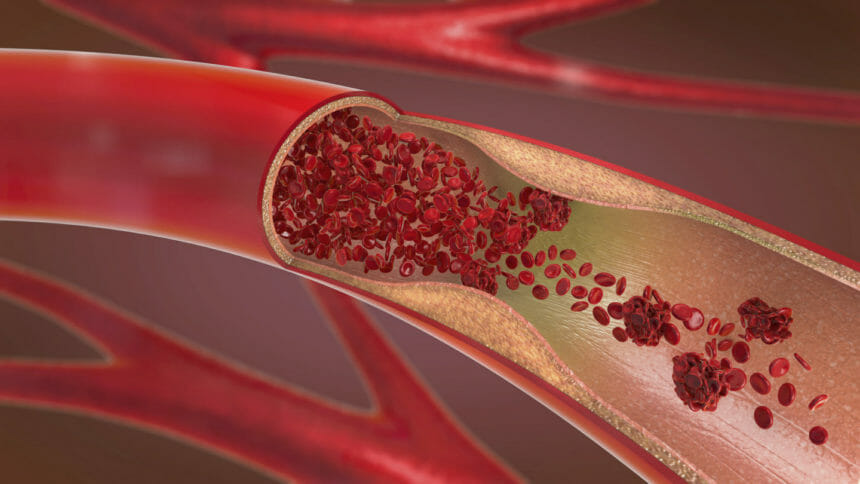
High-doses of heparin, an anticoagulant, can be a lifesaver for patients with moderate COVID-19 illness at risk for blood clots, two new studies have found.
COVID-19 has a signature feature: wide-ranging vascular inflammation that can contribute to blood clotting. Not only are patients with severe illness at risk of developing life-threatening clots, but those with moderate illness are as well.
In an international study published Oct. 14 in the BMJ, high doses of the blood-thinning drug heparin were found to reduce the risk of blood clots and death in moderately ill patients by 78% when compared to lower, prophylactic doses. High-dose heparin was not associated with reduced need for mechanical ventilation or admission to intensive care, however.
In another study published Oct. 7 in JAMA Internal Medicine, researchers were able to identify an ideal patient group for high-dose treatment low-molecular weight heparin (LMWH).
Moderately ill COVID-19 patients with very elevated d-dimer levels (a measure of blood clot risk) had increased odds of severe disease and death, they found. But when given high doses of LMWH, they had significantly lower risk of clot formation and death when compared to their peers who received standard prophylactic doses of heparin.
The findings in the latter study could lead to a major change in hospital guidelines, according to the researchers.
“[The study] now presents compelling data that we should, in high-risk hospitalized patients with elevated d-dimers, use therapeutic doses of heparins to prevent clots,” said lead author Alex Spyropoulos, Ph.D., of the Feinstein Institutes for Medical Research in Manhasset New York.
Other studies also support a role for blood thinners in COVID-19 treatment for moderately ill patients. Trial results published in August found that moderately ill, hospitalized COVID-19 patients who receive heparin have less need for organ support such as mechanical ventilation, and improved chances of leaving the hospital. Heparin use did not affect the condition of critically ill patients who required intensive care, however.
Outside of COVID-19 treatment, high — or therapeutic — doses of heparin typically are used to treat severe blood clots such as deep vein thrombosis or pulmonary emboli. Lower prophylactic doses often are given to patients to prevent blood clotting during hospital stays.




